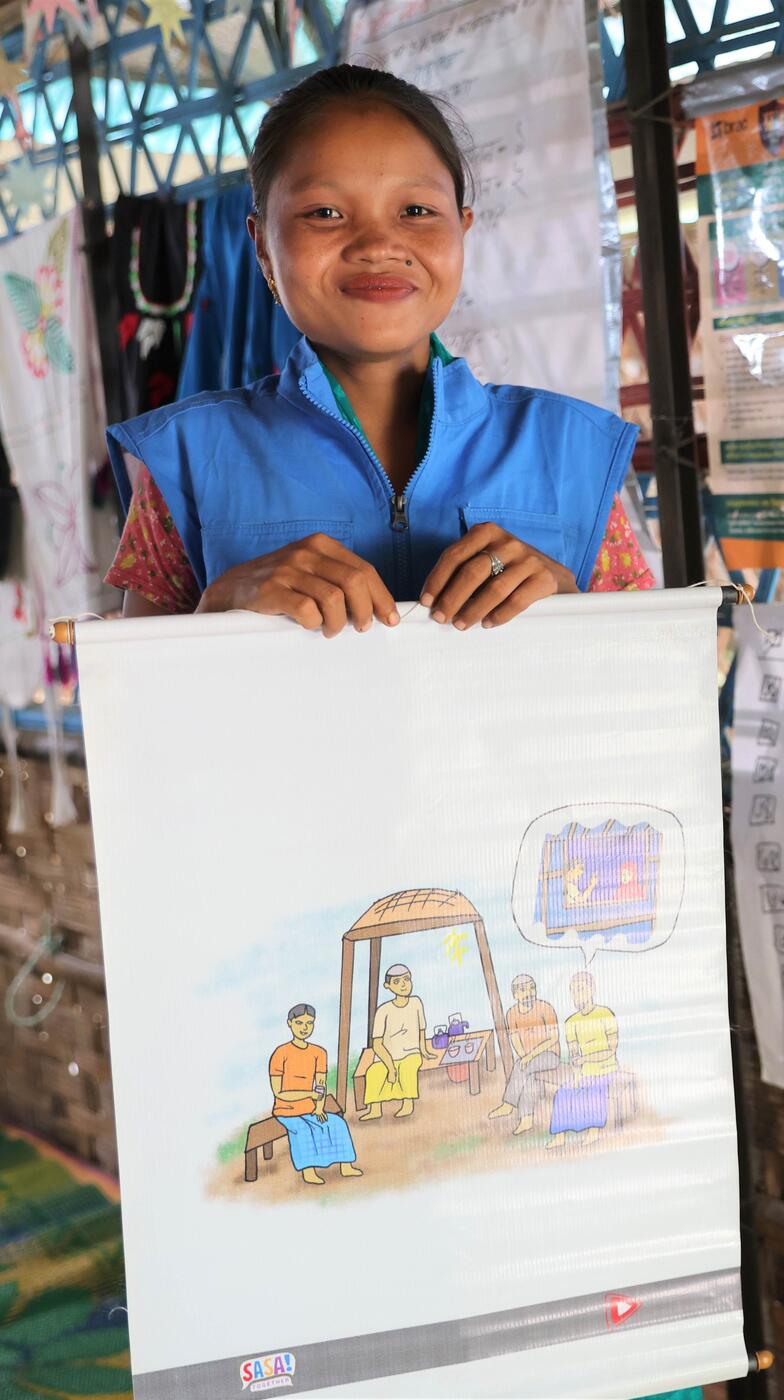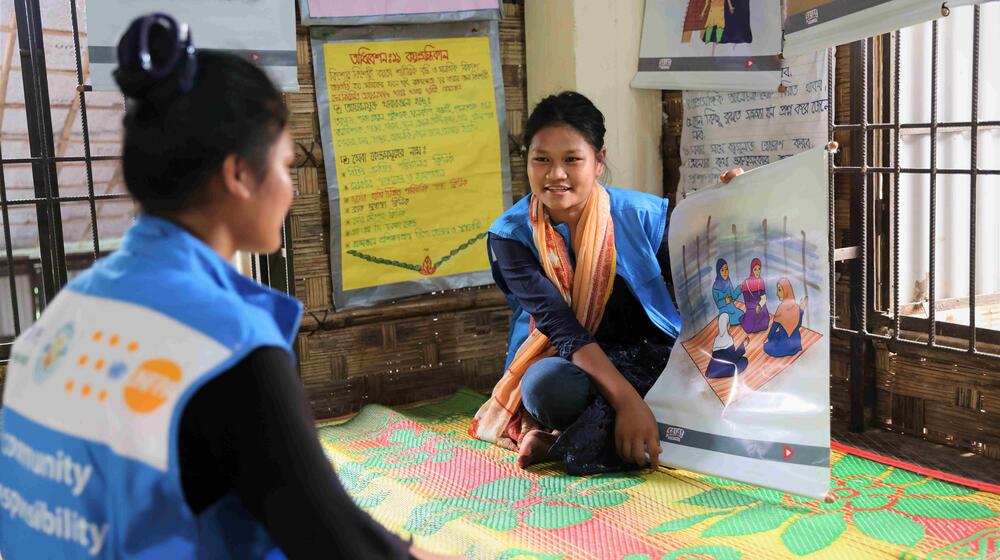News
Child brides fight back against gender-based violence in Bangladesh
- 16 December 2022
News
COX'S BAZAR, Bangladesh - “I was married at the age of 14 and I lost my first child at 16 during pregnancy.” Ranu Chakma, now 18, says teenage motherhood is not uncommon in her village of Teknaf Upazila, on the southern coast of Bangladesh.

Harmful social norms in the area mean that girls from poorer families are often denied the basic right to education, and many parents from disadvantaged backgrounds marry off young daughters in order to help relieve financial burdens.
“Because I come from a poor household, I wasn’t able to attend school beyond the second grade, and neither did my siblings,” said Ranu of the challenges she and many other women and girls from marginalized groups in her community face.
More than half of all girls in Bangladesh are married before they turn 18, and over 15 per cent are married at age 14 or under – one of the highest rates of child marriage in the world. Child marriage is a violation of human rights and a form of gender-based violence: Child brides have less access to sexual and reproductive information and services, increasing their risks of unintended pregnancies and sexually transmitted infections, including HIV. Many are unable to continue their education, blunting their earning power in their adult lives, and girls who get married early can be under pressure to give birth while they are still children – which puts both mother and baby’s lives at greater risk and is the leading cause of death globally among teenage girls.
Dreams for a brighter tomorrow
To combat this gender inequality and advocate for other girls in her village, Ranu joined a UNFPA-supported group of activists called Start, Awareness, Support, Action (SASA!Together), which was established in December 2020. The group was set up following alarming reports of intimate partner violence in Cox’s Bazar and brings together girls, boys, women and men to prevent and mitigate violence and challenge ingrained power imbalances between women and men. Participants come from both Rohingya and host communities, groups with heightened vulnerabilities due to the strains of mass displacement.
“As I never had the chance to get any kind of formal education, I’m quite excited about everything I’ve discovered through SASA!Together. I learned about the many dimensions of power and its misuse in society, as well as how to address this in the household, but also in the bigger community,” she explained to UNFPA.

Participants also help other members of their community to become champions against violence and injustice, so far mobilizing over 300,000 people across 17 displacement camps and four host communities. The approach uses campaigns, training, knowledge-sharing sessions, group work and discussions to inform, share and increase awareness on gender-based violence and the available protection and prevention services.
"I want to pass on these skills and information to my children, so they don't have to face the hardships that my generation did. I want them to grow up to be resilient, aware of their rights, and able to speak out for themselves,” said Ranu.
Building an empowered generation
Over the past two years, SASA! has trained more than 4,800 activists, including male and female community and religious leaders from Rohingya and host communities. The approach has since been extended to more than 30 UNFPA-supported women’s safe spaces and 10 women-led community centres in Bangladesh.
Shantimala and Shwapna are also from Teknaf, and have been volunteering with the initiative since they were 15 years old. Together they attend sessions after school to learn about violence against women and girls and how they can help to prevent it – information that has served them well.
Shwapna told UNFPA,"My parents wanted me to marry at the age of 13, but I was not ready. I urged my father to reconsider, but he refused.” Shantimala helped her contact a community activist, who visited her home and discussed the repercussions of child marriage with Shwapna’s parents. “My marriage was stopped, and my father gave me permission to finish my education," Shwapna continued.
“Now I impart these insights to my neighbours and fellow community members. I push for equal educational and career opportunities for adolescent girls.”
In 2021, through one-stop crisis centres (which bring together a number of services under one roof), women’s safe spaces and community centres, UNFPA reached more than 60,000 community members in Cox’s Bazar with information on gender-based violence and over 260,000 women and girls with violence prevention and response services. In addition to outreach, services include reproductive health and psychosocial assistance, clinical management of rape and referrals for legal and medical support.